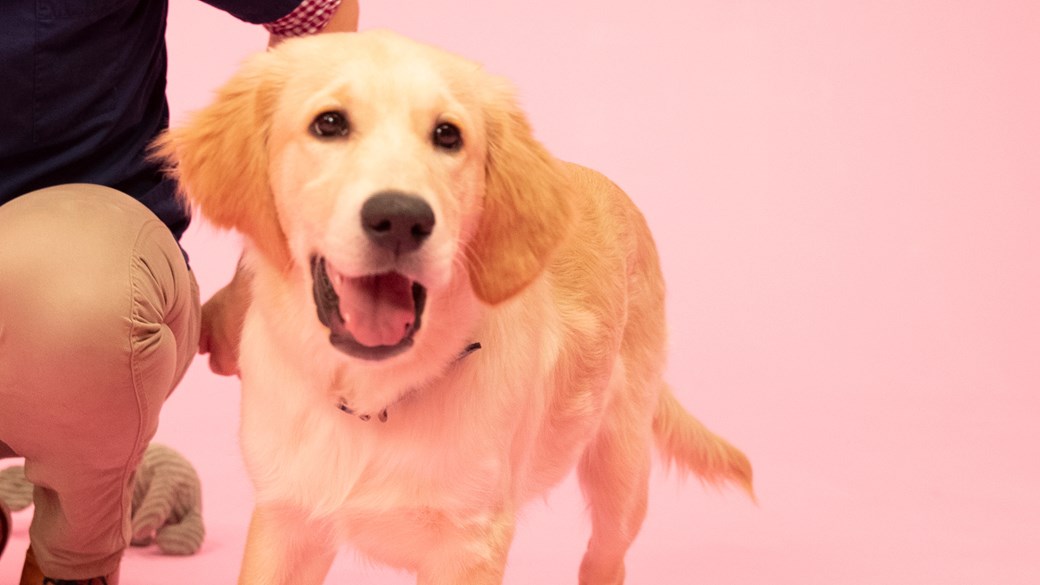
Puppy and Kitten advice
Giving your pet the best start in life begins with getting the best expert advice
We know that becoming a new pet parent can be an overwhelming, yet rewarding time. That's why, here at Vets4Pets, we want to give you the best expert advice to ensure your puppy or kitten has the best start in life.
New puppy or kitten?
-
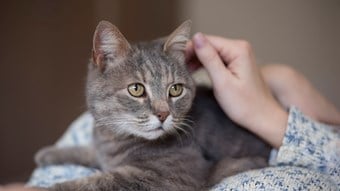
Introducing Kittens To Dogs
Dogs will often accept a new kitten more easily than cats will and many dogs and cats go on to become really good friends. Click here to find out more.
-
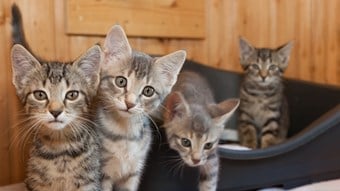
The Kitten Socialisation Period
Learn how to introduce your kitten to new experiences and socialise them during their socialisation period with useful pet health advice from Vets4Pets.
-

Playing With Your Kitten
Every kitten loves to play so keep yours happy and active by playing ball, dangling strings and generally playing your part in keeping it entertained.
-

Letting Your Kitten Outside For The First Time
Knowing when and how to let your kitten outside can help you have peace of mind as you introduce your little bundle to the big wide world! Read more online.
-
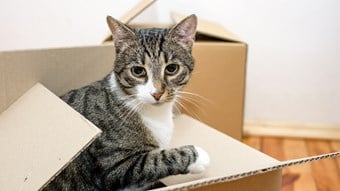
Entertaining Your Kitten
Are you looking for ways to keep your kitten entertained? Find out the best ways to keep your indoor cat happy with our helpful online guide here.
-
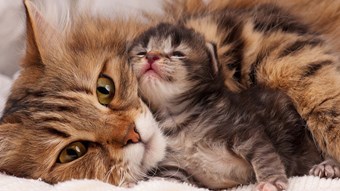
Introducing a Kitten to an Older Cat
While cats can live very happily together in the same household, some may struggle to accept a new kitten. Read more with our helpful guide online.
Join our free VIP Puppy & Kitten Club
Join the club for expert advice and tailored offers, including £30 off our Complete Care Health Plans
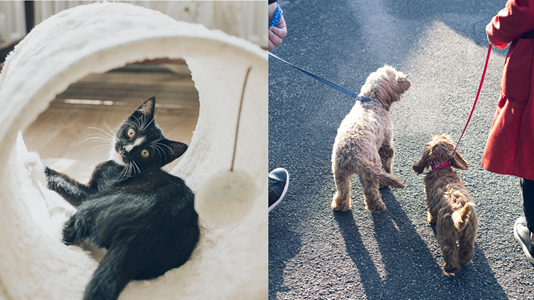
Puppy & Kitten FAQs
You’re quite right - adolescent puppies can be every bit as wayward and distracted as human teenagers!
Go back to basics and practice your training in ‘safe’ environments with no distractions and lots of positive rewards for correct behaviours, and be reassured that this is likely to only be a phase that they will grow out of.
If you are not sure how best to approach this we would suggest finding a qualified dog trainer to work with or click here for more dog training advice.
Lead walking is something to practice with short sessions at home before you go out for a walk.
Start by teaching your dog to sit and stand comfortably at your side. Remember to reward them regularly, giving your dog a treat whenever they don’t pull. Slowly build up to taking some steps around the room or garden, being sure to stand still every time pulling occurs.
Read our top lead training tips here
All kittens bite as part of their play and practicing predatory behaviours. Most will grow out of this with time, but you can help with this by not encouraging them and stopping playing if they bite.
You can dissuade them from jumping on the table by blocking their way. Likewise, block them from scratching the carpet by temporarily covering it to make it inaccessible, whilst making sure that they have a nice tall scratching post nearby that you can redirect them towards.
They could be barking because they’re friendly and excited, or it may be that they are anxious and aroused.
In either case, it’s really important that you don’t try to punish or dissuade the behaviour since this could create a problem or make it worse.
If you are concerned please talk to your vet for more advice.
Just like wolves, dogs howl when they are trying to communicate at a distance with their pack members.
This suggests that your dog may be feeling distressed when you leave them, and we would suggest talking to your vet for more advice.
Read about separation anxiety in dogs here
Puppies will quickly learn to settle and sleep through the night as they get older.
For very young pups, night-time can be too long to go between toilet breaks. So you may have some broken nights sleep for the first weeks or months that your pup is with you.
Many worming tablets are now designed to be palatable so that cats will voluntarily eat them as a treat or in food, but if she isn’t so easily fooled then we would suggest asking your vet to administer the tablet or to prescribe a spot-on worming product instead.
Aren’t puppies delightful? This is likely to just be a ‘phase’ that they quickly move on from, but it would be worth making sure that they are up to date with their worming. If the problem persists please talk to your vet in case there are signs of a medical condition.
Resource guarding is a natural behaviour in puppies, where they are protective over items such as food and toys. It is preferable if they don’t direct this behaviour towards human beings.
It’s very important not to try and ‘show them who’s boss’ by taking the resource off them since this will only confirm their fears and make the behaviour worse.
Click here for more information on how to manage this behaviour.
It sounds like he also had his kennel cough vaccination today, which is usually administered as a squirt of liquid up one nostril.
It’s perfectly safe for him to be given this at the same time as his injected vaccine, and provides important protection for when he comes into contact with other dogs or has to stay in kennels.
Kennel cough vaccination lasts for a year so it will need to be repeated alongside his booster vaccination in the future.
Spaniel ears are, by design a bit prone to collecting dirt and getting waxy and smelly.
An occasional squirt of ear cleaner is not a bad idea, but needing to do it twice a week and only in one ear seems a bit excessive - it’s probably worth getting your vet to check that there isn’t an infection or foreign body in there that’s causing a problem.
Cats invented the ‘catnap’ and tend to follow their own rules when it comes to sleeping and being awake - sorry!
Older cats that become vocal or disruptive at night might be suffering from a degenerative condition called cognitive dysfunction, so if this sounds familiar please talk to your vet.
